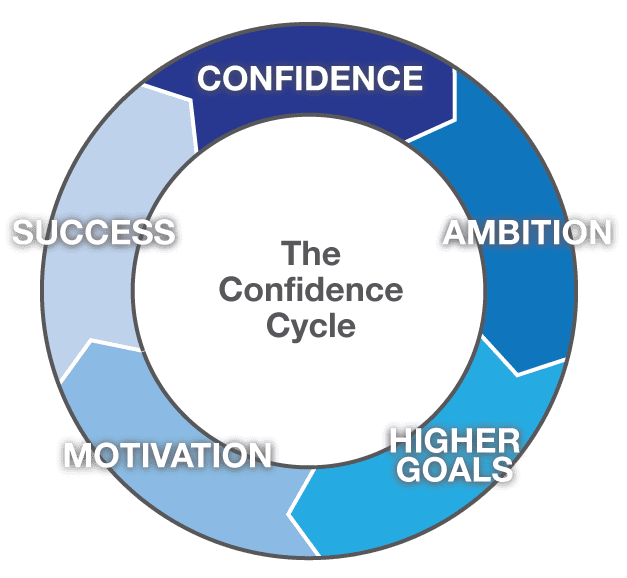
I started a new job and am having problems talking with my new co-workers. Also, I’m so afraid of making mistakes that I haven’t been able to do my work. How can I get the self-confidence to do my work and make new friends?
Self-confidence is described as full trust and reliance in self. When we have it, we know we’re on the right track and contributing positively to others and to our own life. We walk and talk with assurance and a positive manner.
As children, we had self-esteem as part of our makeup. We were valued for being alive — we walked into rooms and people smiled, engaged us in conversation, and told us how cute or smart we were. Others were at once affirming and contributing to what we thought of ourselves. As we got older, we realized that others do hold opinions of us, and we began to place more weight on people’s judgments of us than on what we thought of ourselves.
A lack of self-esteem prohibits our taking chances and risks — when we worry that we might fail and others might see that failure, it just seems easier not to try. Low self-esteem weakens our ability to have true relationships — if we guard our true selves by focusing on how we look and what we’re saying, we aren’t allowing others to see the beauty that is unique to each of us.
Confidence serves a function in life: It allows us to bypass feelings of fear, providing us with the strength to face new challenges. Because self-confidence comes from within, we hold the key to change. No one has confidence in all areas of her life at all times, but there are a number of practical steps we can take to begin to see ourselves in a positive light — recognizing our talents, our contributions, and our gifts to others.
- Make a full accounting of your abilities: Make a detailed list of the things you do well. By recognizing your contributions, you will gain strength from them.
- Find the solution: Focus on the solution and not the problem. This allows us to create change rather than focus on “what we could have done differently.”
- Communicate with yourself: Talk to yourself in a way that acknowledges what you’re feeling and encourages you to look at a situation differently. “I’m feeling nervous approaching this person, but I have something to offer.”
- Give to others: Volunteer your time and services. When you help make another person’s life better, there is no room for failure.
- Take risks: Make a list of the things you’ve always wanted to do — singing lessons, an art class, learning a new language. With so many opportunities available online today, you can practice from the confines of your home. Tell your family what you’re planning to do, what you will need from them, and do it.
- Nurture yourself: We live extremely busy lives, and it’s impossible to accomplish everything. Recognize and acknowledge your own needs.
- Seek your approval: Ultimately, yours is the only opinion that matters. If you feel you are doing the best job possible, then you are well are your way of valuing your talents and contributions.
Self-confidence isn’t instant; it builds. Every day, acknowledge what you’ve accomplished in your own life and what you’ve given to the life of another. The question isn’t whether you do contribute but whether you recognize your contribution.

Be the first to comment